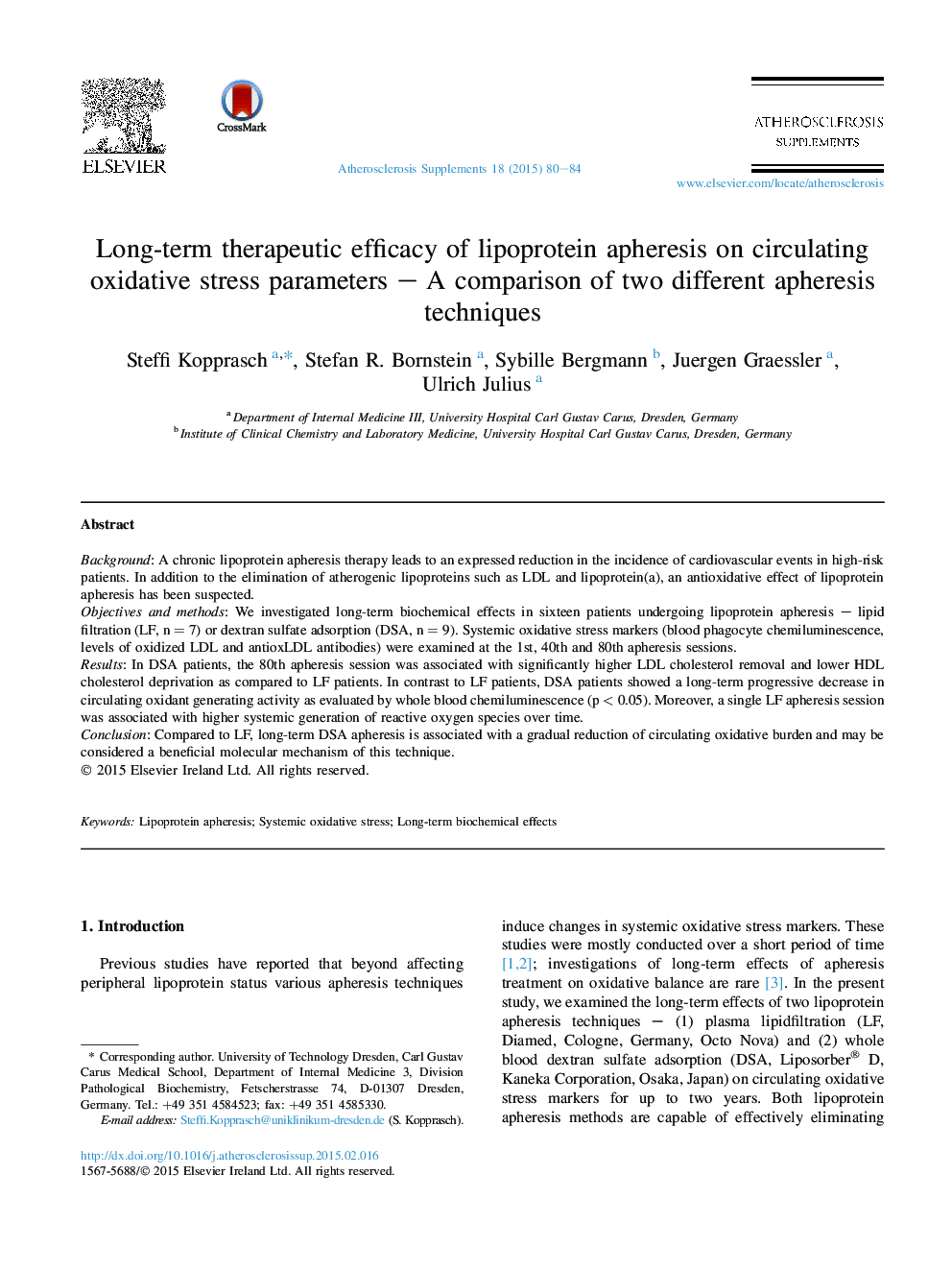| Article ID | Journal | Published Year | Pages | File Type |
|---|---|---|---|---|
| 2895455 | Atherosclerosis Supplements | 2015 | 5 Pages |
BackgroundA chronic lipoprotein apheresis therapy leads to an expressed reduction in the incidence of cardiovascular events in high-risk patients. In addition to the elimination of atherogenic lipoproteins such as LDL and lipoprotein(a), an antioxidative effect of lipoprotein apheresis has been suspected.Objectives and methodsWe investigated long-term biochemical effects in sixteen patients undergoing lipoprotein apheresis – lipid filtration (LF, n = 7) or dextran sulfate adsorption (DSA, n = 9). Systemic oxidative stress markers (blood phagocyte chemiluminescence, levels of oxidized LDL and antioxLDL antibodies) were examined at the 1st, 40th and 80th apheresis sessions.ResultsIn DSA patients, the 80th apheresis session was associated with significantly higher LDL cholesterol removal and lower HDL cholesterol deprivation as compared to LF patients. In contrast to LF patients, DSA patients showed a long-term progressive decrease in circulating oxidant generating activity as evaluated by whole blood chemiluminescence (p < 0.05). Moreover, a single LF apheresis session was associated with higher systemic generation of reactive oxygen species over time.ConclusionCompared to LF, long-term DSA apheresis is associated with a gradual reduction of circulating oxidative burden and may be considered a beneficial molecular mechanism of this technique.
